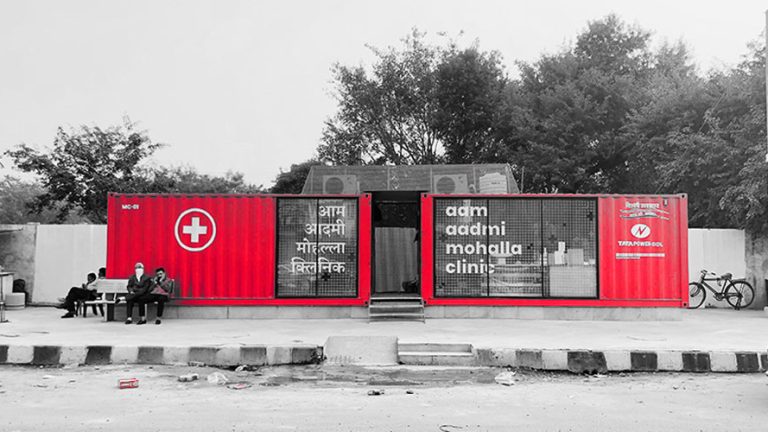Delhi mohalla clinics: Enhancing Delhi’s healthcare system for women in need of healthcare
Arvind Kejriwal, the chief minister of Delhi, announced on Wednesday that his administration is opening dedicated mohalla clinics as an initiative toward women’s healthcare, where women would be able to receive free gynecological services, tests, and medications. One of the key programs of the Kejriwal administration is the mohalla clinics System, which aims to improve Delhi’s primary healthcare system.
The goal of the Kejriwal government is to open 1,000 Aam Aadmi Mohalla Clinics (AAMC), of which 520 healthcare centers have already been operating in the city since December 31, 2021, according to the Outcome Budget that the Delhi government submitted to the Assembly on March 25.
Each mohalla clinic sees an average of 116 people each day, for a daily total of more than 60,000 patients.
After the ribbon-cutting for the Mahila mohalla clinic built at the DIZ Staff Quarters in the Kali Mandir neighborhood, the Delhi chief minister said, for women’s healthcare, such facilities are currently being opened on a huge scale. It was felt that the healthcare system needed some facilities that are specifically for women.
The first four clinics have opened at Munirka’s Basti Vikas Kendra JJ Camp, the Sector-4 DIZ neighborhood, Kondli’s Sapera Basti, and Okhla’s DJB Sewage Pumping Station Batla House.
The Mahila mohalla clinics model is an innovation that is unique to our nation. Mahila mohalla clinics will only treat mothers and children under the age of twelve. These clinics will only employ women, and just like regular mohalla clinics, all services will be provided free of charge.
All testing relevant to women’s healthcare and adolescent healthcare, in addition to the 239 tests performed at mohalla clinics, will be performed at these new facilities.
Even though the Delhi healthcare system has always had large hospitals, patients would still have to wait in line even for simple cold and cough treatments. This was eternally altered thanks to mohalla clinics. They would have to go to these large hospitals, which would result in frequently lengthy lines there as well as overpopulation. They would also not receive free medications, so they would have to pay for these and other amenities.
The Delhi government has observed that the majority of doctors in mohalla clinics are men, which may make women less at ease than they would be with doctors of their gender. They might also experience various health problems that the male doctors can’t necessarily relate to.
Consequently, there was a need for specific mohalla clinics that are dedicated to serving women’s healthcare in the city. From Monday through Saturday, the Mahila mohalla clinics will be open from 8 am to 2 pm.
To make sure that all local healthcare institutions retain the necessary stock of medications, consumables, and equipment, the Delhi government has contemplated the development of a panel to monitor the operation of Mohalla Clinics.
Women Empowerment: Primary Focal Area For The Delhi Government’s Budget For 2021-22
Manish Sisodia, the deputy chief minister of Delhi and minister of finance, allocated 4,750 crores for the Department of Social Welfare, Women Empowerment and Child Development, and the welfare of SC/ST/OBC when he presented the budget.
The advancement of Delhi also depends on women’s empowerment, hence making accessible healthcare, education, and social services a top goal.
Women’s empowerment is a major topic of concentration in Delhi’s 2021–22 budget, with initiatives ranging from creating specialized “mohalla” clinics and support centers for women to enhancing their position in the economy.
The development of 500 Anganwadi hubs in various sections of the city is part of a new initiative the deputy chief minister of Delhi announced to empower women and give them a bigger role in the economy.
The establishment of 100 “Mahila Mohalla Clinics,” according to the announcement, would give every woman in the city access to “special services of gynaecologists and related diagnostic tests.”






Add comment